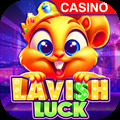Dungeons & Dragons: How To Use Language Proficiencies In Your Campaign

Languages are a difficult thing to make interesting in Dungeons & Dragons. Whatever language you say a character is speaking, you're typically using only one real-world language around the table. This can work against you when telling stories that prominently feature language barriers or cultural differences.
RelatedDungeons & Dragons: 10 Tips For Playing With Only Two People
You don't need a big party to have fun playing Dungeons & Dragons.
PostsThis doesn't mean every Dungeon Master needs to be like Tolkien, inventing a half dozen new languages and a nascent dialect in every second village. Using the right combination of storytelling and gameplay tricks you can immerse your players in the world you have created and reward the rare player who takes the linguist feat.
Use Languages In Worldbuilding
Alaundo the Seer by Aurore FolnyThere are a few different ways you can change the way languages work in your setting that can expand the potential for storytelling and adventuring. A campaign focused on globetrotting will interact with a lot of different groups, and languages are a good way of making them distinct and memorable.
Remove Or Revise The Concept Of A Universal Language
A helpful worldbuilding note from third edition Dungeons & Dragons is that 'Common' doesn't refer to a single language but instead whatever is spoken in the region of the campaign. For most of Faerun this is Thorasta and a range of dialects. The Underdark's version of Common doesn't share a written script or any words with the Common spoken on the surface.
When building your campaign setting consider having different Common tongues in different continents. A campaign set entirely around a dwarf kingdom would mostly have characters speaking Dwarven, and characters created in that setting would know this language for free.
This also means that diplomacy across countries and continents would be more dependent on knowing other languages since there isn't a single global language. Despite the best attempts of 20th-century linguists, Esperanto never took off as the global language of humanity.
There might still be certain aspects of language that do become global. Arabic numerals and SI units are standard in real world commerce and science even when the speakers are neither Arabic or French.
Consider How Languages Interact
D&D's worldbuilding notes that many of its languages are derived from the Elven and Dwarven written languages the same way many European languages are derived from German and Latin. This means a player who knows one language might be able to partially translate keywords from a related language.
The Player's Handbook has some of these details already filled in.
- The primordial languages used by elementals are considered dialects rather than seperate languages.
- The Sylvan language is said to be written in the elvish script, but Fey might dispute this and assert the Elvish language is derived from Sylvan.
- Common, despite being the most abundant language in most settings, doesn't share its written script with most other languages. People with Common as a first language might struggle more with learning a second.
Have Language Influence Culture
You can use different languages as a tool for expanding roleplay and demonstrating unique cultures in your world. Characters will broadly be more comfortable speaking and more descriptive when able to speak in their native language, encouraging your players to make use of languages when making social skill checks.
You can also use language as a way of adding flavour to an individual character. The languages a person knows and the language they think in will influence what ideas they are capable of.
Language Trait
Description
Cultural Impact
Tonal Languages
Some languages have a words meaning change depending on the tone used when speaking.
Have a version of Chinese Poet Yuen Ren Chao in your setting, who wrote a poem composed entirely of one syllable pronounced in 94 different ways. (And because its a roleplaying game, you don't actually have to write the poem.)
Gestures and Body Language
Even without considering the multitude of different sign languages, many languages and cultures have different forms of visual communication that go alongside their spoken tongues. Gestures can add emphasis, invert meanings or imply emotional tone.
This adds complexity to how a character emotes and communicates, or creates interesting challenges for characters with impairments. It also changes how eavesdropping and spying work.
Gendered Language
Alongside languages that apply gender to inanimate objects, language can also enable for a greater or narrower conception of gender.
A character raised in a culture that uses gendered language differently or possibly doesn't use gendered language is going to have a different way of viewing other cultures and people.
Pictographic vs Alphabetical Scripts
A language can either spell out words with a phonetic meaning or use symbols that represent specific terms.
A phonetic script can be read without understanding the meaning of the words.
Anumeric Languages
Some languages focus more on comparative amounts than specific counting, going as far as to not have named numbers.
Peoples raised with anumeric languages might be more economically isolated from a world that is used to dealing with specific quantities.
If you've a head for numbers you can also have a culture that counts in base 12, or another numeric system.
Shorthand Scripts
While not their own languages, shorthands are often unrecognisable to people who haven't been trained to read them. Sometimes they will only be legible to the person who wrote them.
Characters who know shorthand are great at conveying hidden messages.
Players who know shorthand are great at taking session notes.
Use Languages To Enhance Roleplay
Tavern, By anotherwandererThere are a few different ways you can convey language in roleplay, with the best results requiring a bit of experimentation and a grasp of what game your group is expecting. A bilingual DM has more tools to work with. Still, anyone should be able to pick up at least one trick from the following:
Technique
Notes
Example
Use Accents To Represent Different Languages
Even without speaking a different language, you can signal that a different language is being spoken with tone of voice, pitch and tempo.
Belt out Elven poetry like you're a Catholic priest reading in Latin.
Yodel in Dwarvish.
Use Props For Written Texts
Incorporating visual aspects and letting your players get their hands on something is a good way of making a session memorable. You can use different fonts and calligraphy styles to represent different languages or different authors.
Have a Halfling list appear as a mindmap rather than bullet points.
Use Alternate Languages or Dialects
A DM who can speak multiple languages can use one the players don't know to represent a language the characters don't know.
Within a language, you can also use formal and informal tones to represent different languages, or dialects if you're familiar with them.
Have your orcs speak like New Yorkers.
Faefolk speak as if they're constantly at a formal event.
How To Use Translation Magic
Silverquill Apprentice by Mike BierekThere are a few abilities that can easily circumvent the need to know a language. Magical effects like Tongues, Comprehend Languages and Eyes Of The Rune Keeper all enable a player to automatically translate either dialogue or text. The existence of these magics is healthy for the game, as they allow parties without a broad range of languages to still communicate with NPCs, but means that paladins and rogues who do know languages may be outshone by the wizard or warlock who automatically know every language.
There are multiple solutions to this problem that you can implement depending on the type of game you're running.
Solution
Implementation
Benefits
Impose Time Pressures
Not every diplomat is willing to wait while the party spellcaster takes a long rest to change their prepared spells or even to spend ten minutes ritual casting.
Magical translation still has a defined niche but requires the foresight to prepare it.
Restrict Magical Translation
Require a player to pass a history check to recognise a language before it can be translated.
This allows multiple players to contribute to a translation project. One might recognise the written language as using dwarven runes, and then another tries translation spells for different languages using that alphabet.
Have Terms That Don't Translate Properly
Use concepts that don't function across translation. Puns and rhymes are good examples.
Measurements are also complex: Would a spell that translates measurements automate converting between different counting systems, or know how long a foot and a meter are?
You can turn the act of translating into a puzzle. The players might need to find something that matches the description of the translation rather than know precisely what they're looking for.
You could even create a sidequest out of tracking down preserved tools and texts that allow a more complete translation.
Require The Speaker To Make Charisma Checks
A wizard casting tongues might not be the most skilled at intimidation or persuasion. They might be able to translate a verbal threat from the party's barbarian or paladin but would need persuasion or performance check to convey the emotions.
A party with diverse language skills will be able to share the spotlight by each having a turn being the group's representative.
Use Ciphers, Codes and Metaphors
Spells like Comprehend language specify that they give a literal translation. This means that linguistic nuances such as expressions, metaphors, and code phrases will not be conveyed by the magical translation.
Take the example of a "blighty wound". Does it mean an infectious injury, or a scratch just bad enough to get one sent home to England from the World War One Trenches?
Hidden languages such as Druidic and Thieve's Cant get to keep their secrecy.
Native speakers of languages will be able to easily navigate conversations, but translation magic is still kept relevant for more exotic tongues.
Use Dialects and Mixed Languages
Have areas of your setting where people speak Pidgen or Creole dialects, combining stray words from multiple languages to create a functional new tongue. A magical translation might only pick up stray words.
You can do some fun roleplaying with this, demonstrating how the nations of your world interact.
A Creole speaker is often able to swap easily to one of the parent languages. For example, most Malaysians and Singaporeans know not to put "lah" at the end of their sentences when traveling abroad. You might represent this by givingone of the parent languages for free when a player learns a mixed language.













